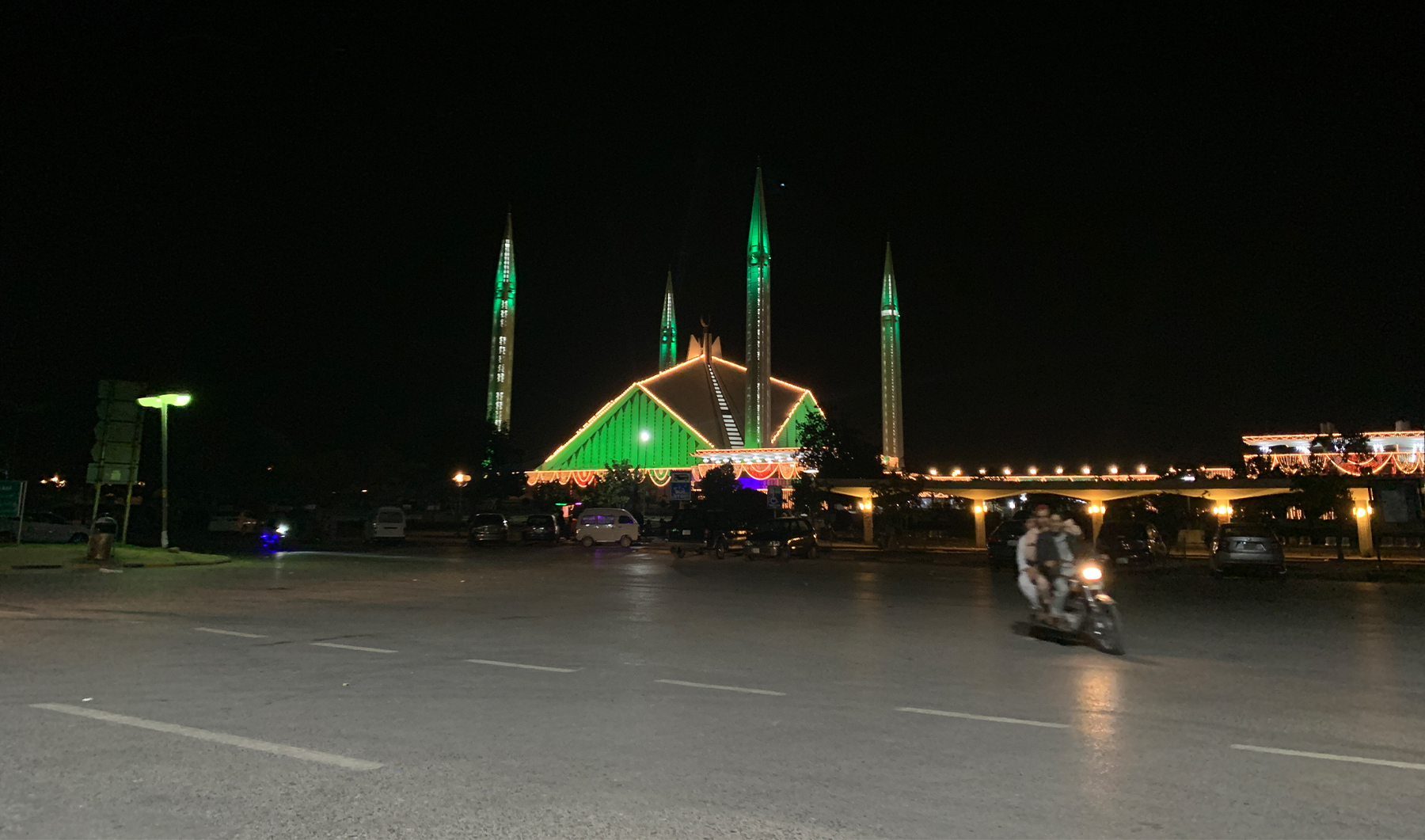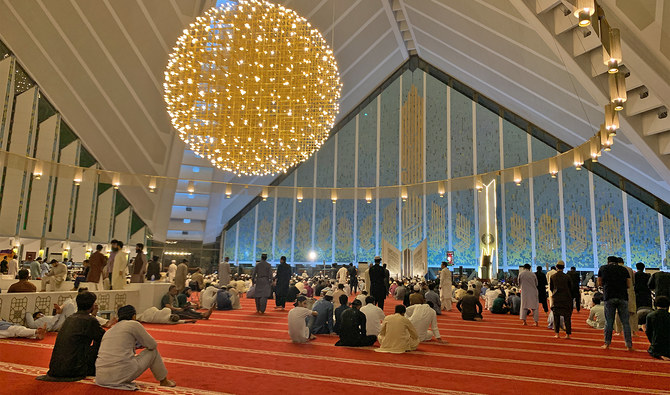ISLAMABAD: Under glittering lights draped across the high ceilings, thousands of rows of believers sat on the floor reading verses from the Qur’an out loud as a prayer leader’s voice echoed across the halls of the vast Shah Faisal Mosque on the foothills of the picturesque Margalla Hills in Islamabad.
This is a usual scene at the mosque in the last ten nights of Ramadan, considered the most blessed of the holy month and in which believers around the world spend late hours saying voluntary prayers and reading the Qur’an. Among one of these odd-numbered nights, Muslims believe, is the “Night of Power” in which Islam says the first verses of the holy Qur’an were revealed to Prophet Muhammad (peace be upon him).
“During the last odd nights of Ramadan, Muslims, especially the residents of Islamabad and Rawalpindi, head to the Faisal Mosque with a lot of interest, and everyone has the same point of view, that the maximum amount of time should be spent in worship and remembrance of Allah,” Mudassir Ilyas, 44, told Arab News on Monday at the Shah Faisal Mosque, named after the then ruler of Saudi Arabia, King Faisal bin Abdul Aziz, who visited Pakistan in 1966 and gave a generous grant of $120 million for its construction.
The mosque is over 54,000 square feet in size and has the capacity to accommodate over 250,000 people at a time. It is the largest mosque in Pakistan and the fourth largest in the world, breaking from traditional Islamic structures like domes and instead built along clean modern lines resembling the tents used by nomadic Arab Bedouin tribes, with sloping roofs and a unique angular body.

Muslim worshippers arrive to pray at the illuminated Shah Faisal Mosque on Laylat Al-Qadr, also known as the Night of Power, the 27th night of the holy fasting month of Ramadan, in Islamabad on April 17, 2023. (AN photo)
The mosque’s white marble structure, flanked by four, 260-feet-high minarets, sits in eye-popping juxtaposition to the backdrop of the majestic Margalla Hills. The minarets are designed in a perfect one-to-one ratio with the base to create an invisible cube that alludes to the Kaaba.
The interiors are covered in intricate mosaics and calligraphy, designed by renowned Pakistani artist Sadequain. Paying homage to its Turkish architect, the main prayer hall sits beneath a sizable chandelier showcasing a traditional Turkish design. In addition to being home to a large population of Friday prayer goers, nikkah ceremonies, funerals and more, the mosque also has an extensive library, lecture hall, museum and even a cafe.
“Impressive arrangements for the [religious] education of people who are observing itikaf have been made,” Ilyas said, referring to the Islamic practice of staying in a secluded part of a mosque for a certain number of days during Ramadan and devoting oneself to worship while staying away from worldly affairs.
“We get to learn a lot here,” he said, pointing to special tents set up in a corner of the huge mosque where people observing itikaf could worship in solitude.
“You can sit here in peace and recite [holy Qur’an] and offer voluntary prayers,” another worshiper, Muhammad Asif Nawaz, 26, told Arab News, a copy of the Qur’an open on a small table in front of him. “You can see different types of people as every type of community comes here.”
For many like Nawaz, time spent in prayer and recitation at the mosque also offered a cherished pause and solace from daily life and work, in his case from “hectic studies.”
Many worshippers had also arrived to take part in “shabeena nights” organized at the mosque, in which the entire holy Qur’an, which has over 6,000 verses, is recited in up to three nights during the last days of Ramadan.
“They bring renowned and skilled Qaris [reciters of the holy Qur’an] here whose recitations one really enjoys,” Ilyas said about shabeena at Faisal Mosque. “It’s a great experience, we get to hear the holy Qur’an and witness spiritual scenes.”
















